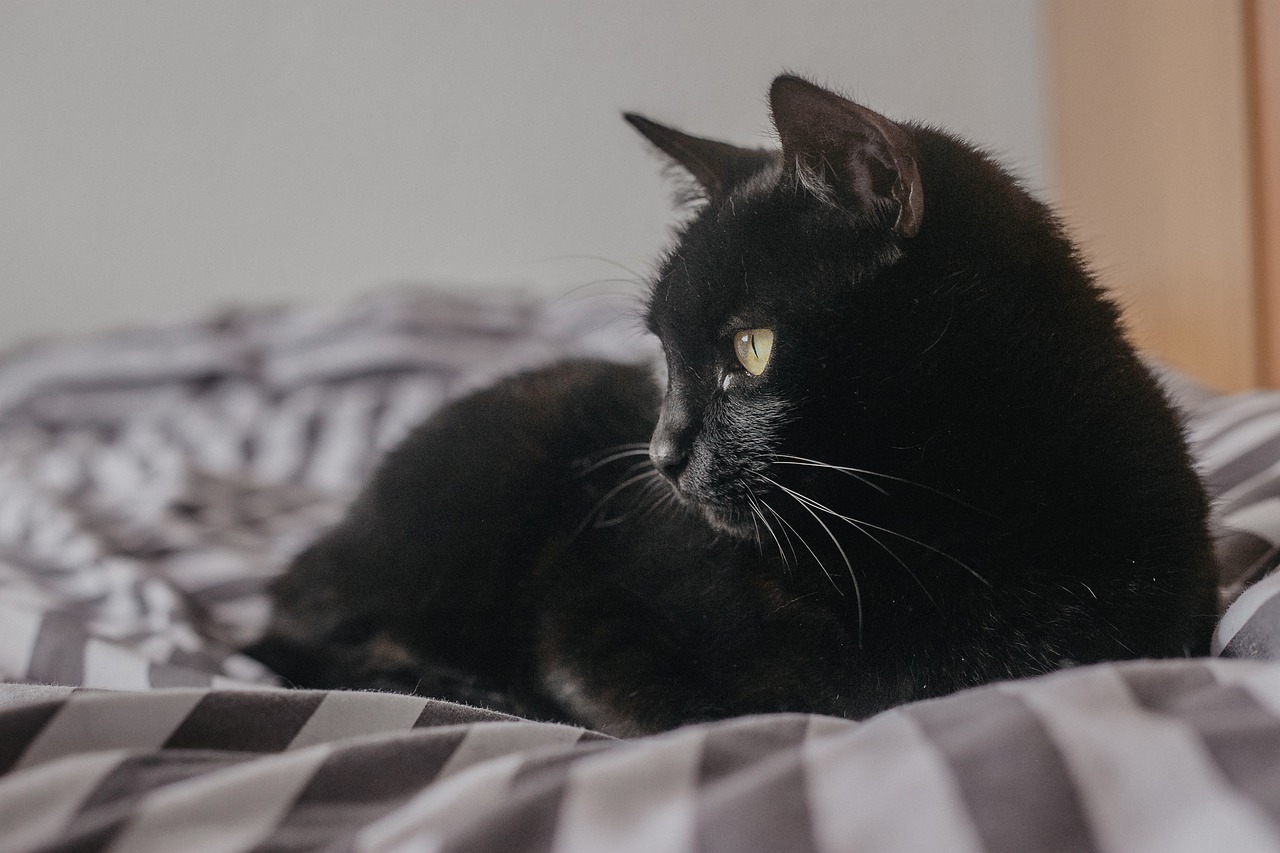The black cat does not bring bad luck, superstition does!
”If a black cat crosses your street, it means it is going somewhere.
Groucho Marx
Superstition is a hateful phenomenon in my opinion. Bad luck is the pass of the cowardly, the excuse of the irresponsible. Always. When this is turned against the defenseless it is an unbearable concentrate of cheap cowardice.
This is the case with black cats. Do black cats really bring bad luck? Or rather, do we really want to keep saying that if a black cat crosses your street it will bring you bad luck?
If you are convinced of this, or if you know someone who still thinks it today, perhaps a bit as a joke and a bit really, then a fleeting look at the past could be useful.
In the pre-Christian and polytheistic world, the cat lived happy days, also because it was venerated as a deity. In ancient Egypt, the goddess Bastet was represented in the form of a cat (black or dark in color). She was the goddess of cats but also of women, fertility, births and the home.
Things changed drastically with the advent of Catholicism and in particular during the Middle Ages: with the Bolla Vox in rama, in 1233, Pope Gregory IX officially condemned the black cat, because he believed that it was the incarnation of Satan, and started a huge extermination of these animals. Women and cats were tortured for centuries: just think that for the feast of San Giovanni (June 24 of each year) all black cats captured were burned alive at the stake on a pole where they could climb only to suffer longer. The ways to torture “the incarnation of Satan” were unfortunately different and all atrocious: cats were beaten to death, skinned alive, thrown from the bell towers and, of course, crucified.
To understand how deep the superstitious madness was, how blind and merciless the need to physically dismember “evil”, just think that the last cat sentenced to death for witchcraft (?) Was executed in London in 1712. It is no coincidence that today it is It is difficult to find completely black cats in Western Europe, while there are many more in the East, starting from the Balkan area.
Pirates are also said to have brought black cats on their ships – black because they were the same color as their banners, so that the cats could chase the mice on the ships (which were more deleterious than enemy guns). For this reason, five centuries ago, the vision of a black cat on the roads near the coasts could indicate the arrival of dangerous freebooters and could therefore be associated with danger and misfortune. Even more ancient, perhaps even dating back to ancient Rome, it seems to be another story at the origin of our unfortunate superstition: crossing the road at night, a black cat could in fact make the horses go wild and cause the wagons to overturn, with disastrous consequences.
It took years and too many sacrifices to understand that times had now changed, that irrational and foolish anger, the need to tear apart a fetish were absolutely useless. Not only useless, but even deleterious: it was during the nineteenth century that the progress of knowledge gradually led to exonerating cats and making their usefulness evident. More than the pirates, more than the runaway horses and above all more than Satan, for centuries it was diseases that had killed. The famous Louis Pasteur (1822-1895), founder of modern microbiology, praised the hygienic habits of cats, always attentive to the cleanliness of their body. In fact, no disease was attributable to the felines, while their bitter enemies, the mice, appeared to be responsible for at least 35 diseases, including the infamous bubonic plague, which in Europe had caused more than 25 million deaths, or a third of the entire population. In other words: if cats had been revered during the Middle Ages, perhaps instead of the black plague and typhus, Europe would only have been infested with thunderous purring and meowing.
Now everything is clear? Superstition does not only seriously harm those who should “bring bad luck”, but everyone. To play with concepts, it could be sarcastically stated that superstition alone brings bad luck. And if a broken cart could be a problem for a Roman merchant, just like the arrival of some drunken pirates for a Sardinian peasant, there is no excuse for us.
So, next November 17th, the day of the black cat, designed precisely to dispel the vulgar beliefs of the dark times, help us tell this story. But don’t just do it for cats. Do it for you too.
Dario De Santis
Zampettando Blog Team







